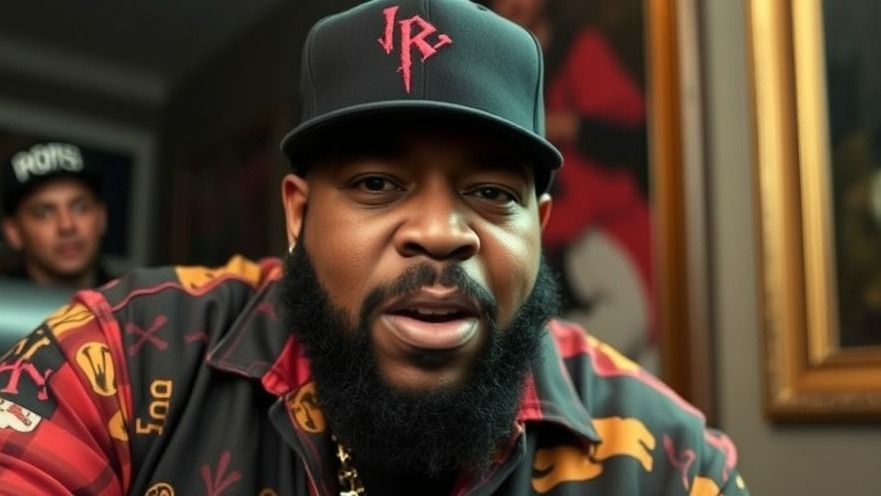
The Complexity of Workplace Environments in the Music Industry
The recent allegations against famous rapper Busta Rhymes (Trevor Smith) by his former assistant, Dashiel Gables, shed light on the often-hidden dynamics of workplace environments within the entertainment sector. Gables claims he was subjected to both verbal and physical abuse during his time working for the rapper. According to Gables, he endured demeaning treatment and overworked hours, culminating in a shocking physical confrontation. This case exemplifies the struggles that many workers face in creative industries—where passion often blurs the lines of professionalism.
Understanding the Allegations: An Inside Look
Gables recalls a tense encounter that escalated dramatically, as he was allegedly punched twice by Rhymes after sending a text to his daughter rather than answering her call. This incident, according to the lawsuit, not only left Gables with physical injuries but also psychological scars that have affected his ability to find work in the industry. “I worked my heart out for Busta,” he expressed in his statement. The situation raises critical questions about the escalation of conflict in high-pressure job environments, particularly where an imbalance of power exists.
Historical Context and Background of Abuse Claims in Music
Rhymes is not the only musician facing such allegations. Historically, the music industry has seen various cases where artists were accused of abusive working conditions. Notably, instances from the past reveal a culture where bullying and mistreatment often go unreported, primarily due to fear of retaliation or job loss. Gables’ case can act as a historical touchpoint. It emphasizes the necessity of accountability in workplaces that are glamorized from the outside but can harbor toxic behaviors internally. Moreover, the repercussions faced by victims, such as being 'frozen out' of the industry, illustrate the challenges in voicing these concerns.
The Public Reaction: Support and Skepticism
Following the surfacing of Gables' lawsuit, public reactions have been polarized. Some empathize with his claims, supportive of anyone exposing workplace violence regardless of the perpetrator's fame. Others, however, argue that such allegations can sometimes stem from misunderstandings or personal grievances. Rhymes maintains that the allegations are unfounded, claiming that Gables is attempting to undermine his reputation out of spite. This scenario reflects a broader societal tendency to question the motives behind allegations, particularly in cases involving high-profile individuals.
Future Predictions: Changes in Workplace Policies?
With increasing awareness about workplace safety and mental health, the Busta Rhymes case may contribute to a larger movement demanding systemic change within the entertainment industry. Pressure is mounting for better policies to protect workers against bullying and abuse. Advocates are calling for reform that includes transparent reporting channels and support systems for those who face harassment in all forms. The conversation surrounding this lawsuit could spark initiatives aimed at creating a safer work environment for others in similar positions.
The Role of Cultural Dynamics in Workplace Abuse
The narrative of the artist-employee relationship can be multifaceted and complex. It encompasses elements of admiration for the artist's talent, which can sometimes lead to a willingness to tolerate unacceptable behavior. Many workers might not feel empowered to stand up against their employers, especially in high-stakes industries where status plays a significant role. Rhymes' alleged actions exemplify the dichotomy often experienced by workers trying to navigate their careers while dealing with mistreatment.
Your Voice Matters: Building a Culture of Accountability
As the spotlight focuses on this contentious lawsuit, it becomes clear that voices like Gables' are instrumental in advocating for workplace changes. His willingness to speak out, despite potential backlash, underscores the importance of building a culture of accountability within high-pressure professional environments. For those who find themselves in similar circumstances, this case may serve as a powerful reminder that speaking out against abuse is not only courageous but essential for enacting positive change.
In light of these revelations, engaging in dialogue about workplace culture and the responsibility of leadership in protecting employee well-being is essential. We must advocate for environments where employees can thrive both mentally and physically. If you are reading this and feel inspired, take action by supporting initiatives aimed at improving workplace policies in your industry. Every voice matters, and change starts with us.
 Add Row
Add Row  Add
Add 




Write A Comment